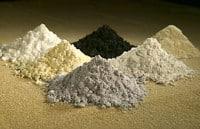
In a widely expected, but controversial, move the US has banned all helium exports to China and its major trade partners, following China’s banning of all rare earths exports.
China, which still controls more than 75 percent of the world’s rare earth reserves – despite recent discoveries of deposits in Australia, Canada and Mozambique – has demanded that companies set up high-end manufacturing within China, in order to gain access to these rare metal elements.
The US controls some 80% of the world’s helium reserves and has become increasingly protective of this scarce resource as they run their reserves down.
“If China wants to get control of all high-tech manufacturing through their monopoly of rare earths, we’ll show them that they still need the rest of the world,” said Senator Charles Conway.
The immediate result is that China’s exceptionally lucrative medical imaging industry has struggled to secure sufficient helium to run the complex cooling systems in their devices.
“We’ve been working with our competitors to secure supplies of helium, but it is having a major impact on production and servicing of our MRI scanners,” says Andrea Simmons of GE Healthcare.
“There is no chemical means to make helium. The supplies we have on Earth come from radioactive alpha decay in rocks. Right now it’s not commercially viable to recover helium from the air, so we have to rely on mining.
But if we do run out altogether, we will have to recover helium from the air and it will cost 10,000 times as much,” says Nobel prize winner, Professor Robert Richardson.
“No other substance has a lower boiling point than helium. It is also used in the manufacture of fiber optics and liquid crystal displays.”
A consortium of electronics device manufacturers, including Intel, Acer, Huawei and Samsung, are offering a prize of US$ 1 billion to the person or company that can invent a low-cost method of extracting helium from the atmosphere.
ANALYSIS >> SYNTHESIS: How this scenario came to be
1996: Short-sighted helium move
In 1996 the US Congress passes the “Helium Privatization Act of 1996” requiring the sell-off of all US supplies of helium by 2015. 22% of the annual total world production of 32 million kilograms goes into cooling the superconducting magnets in MRI scanners. 78% is used to pressurize and purge pipelines, in the maintenance of controlled atmospheres, and in welding.
2010: China flexes its control of Rare Earths
Japan and China come close to an outright trade war after China bans rare earth exports following the arrest of a Chinese fisherman for infringing on Japanese territorial waters. For the first time manufacturers recognize the danger of Chinese control of 85% of all rare earth accessible reserves. Led by Japan and the US, mining companies immediately start exploring friendly countries for new deposits. Africa, one of the most unexplored regions of the world, is the beneficiary of tremendous new investment.
Chinese diplomats realize that there is little the rest of the world can do and so strangle all exports by the end of 2010. Henceforth, if you want rare earths to be used in your industrial processes, the factory better be based in China.
2015: Helium reserves spark new trade war
In 1925 the US government set up the National Helium Reserve outside Amarillo, Texas. US natural gas fields have an unusually high concentration of helium which makes it the most productive place for extraction. By 1995 the government had over 1 billion cubic meters of gas and had incurred a debt of US$ 1.4 billion for its collection and maintenance. Only belatedly, in 2014, did the US government recognize the danger of dumping the world’s most important rare element onto world markets at highly subsidized prices.
In early 2015 the US privatizes helium extraction to US-based companies. The price of helium shoots up 10,000 times but is still in serious demand. The US government takes aim at its major trade competitors, especially China.
“The Chinese have ignored global intellectual property laws and simply copied sophisticated technological devices, flouting their patent obligations. We may not be able to stop them but we can certainly block essential components necessary to build these devices with our stolen technology,” says Rep Harry Reid, as he unveils a new “Protection of rare and essential elements bill” in Congress.
As business confidence plummets almost as fast as world markets, industrialists await China’s response.
Warning: Hazardous thinking at work
Despite appearances to the contrary, Futureworld cannot and does not predict the future. Our Mindbullets scenarios are fictitious and designed purely to explore possible futures, challenge and stimulate strategic thinking. Use these at your own risk. Any reference to actual people, entities or events is entirely allegorical. Copyright Futureworld International Limited. Reproduction or distribution permitted only with recognition of Copyright and the inclusion of this disclaimer.
